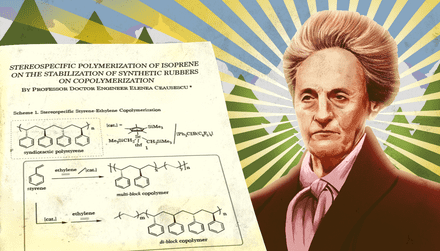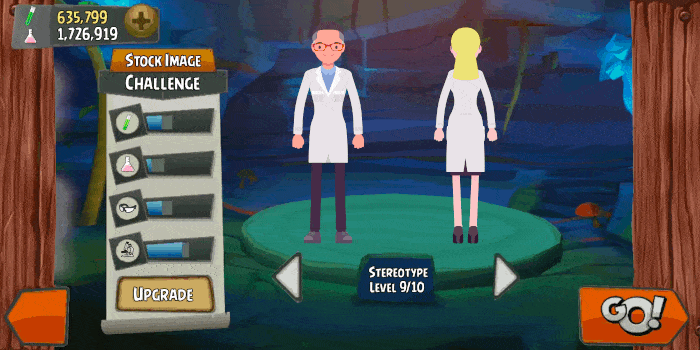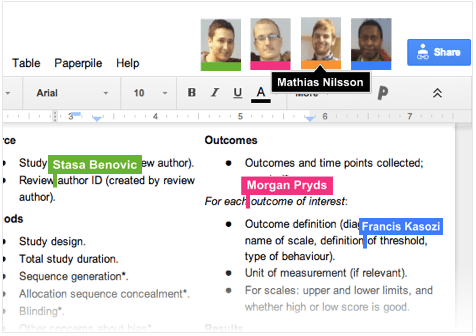
Soon after our launch in October 2013 we were contacted by a group of students from UCC Hillerød, Denmark about using Paperpile to write their final thesis project in Google Docs. Since they would only be using Paperpile for a few months, we created a special short-term group license for them and left them to their work.
A few months later we noticed a sudden spike in usage from Denmark, with a few users furiously adding citations and formatting their documents late into the night for days on end. Immediately we knew: our plucky group of students were wrapping up their thesis, using Google Docs and Paperpile to get things ready to print before the Christmas holidays!
We recently caught up with Mathias, Stasa, Morgan and Francis to congratulate them on their successful project and ask a few questions about their experience writing a group project with Paperpile.
Before reading on, you may wish to check out a view-only copy of their collaborative document in Google Docs. (Warning: it’s mostly in Danish!)
Q: Hi, Mathias! First, tell us a bit about yourselves. What are you studying, and how did you end up working on this project together?
Hi Greg! We are four physiotherapy students who, after 3 ½ years of study, only needed to write our bachelor project to finish our studies. We decided to write our bachelor project together because we had positive experiences with previous collaborative projects.
Q: What was the focus of your project? How did your team collaborate throughout the term?
We decided to focus on the prevention of ACL (anterior cruciate ligament) injuries in high-risk sports such as soccer and handball.
Based on previous projects, we found that in-person communication was more effective and had a lower risk of misconception than through text or speech alone. Therefore we met every day at the local library. When the library was closed, we met elsewhere or used web-based call-services as the primary communication tool. The decision to use Google Drive with Google Docs was made because of the ability to collaborate in real-time.
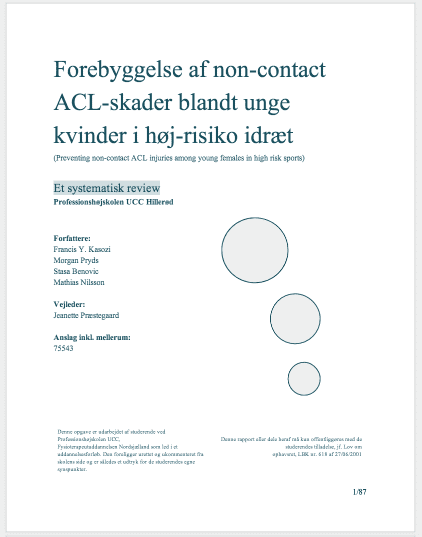
Q: How did you find out about Paperpile?
We were quite eager to find a useful reference manager, as we had already tested several with less than optimal results. Only Paperpile, which we found by searching through various blog posts and community forums, was effectively integrated with Google Docs. It proved to be very effective!
Q: How were you originally going to write up the project? How did Paperpile change that?
While Google Docs had most of the tools to we needed for a collaborative project, the only thing missing was an integrated reference manager.
After signing up for a one-month trial of Paperpile we quickly found the ability to “click and add” articles from Pubmed and Google Scholar (among other sites) to be very timesaving. As the articles were added to our reference database (visible to all authors), we could add them as references in the project, simply by clicking the Paperpile icon in the Google document, type the name of the article, and click “add reference”. We could even add books as references, simply by by writing the ISBN number. There is no doubt the user-friendly interface saved us a lot of time through the course of the project.
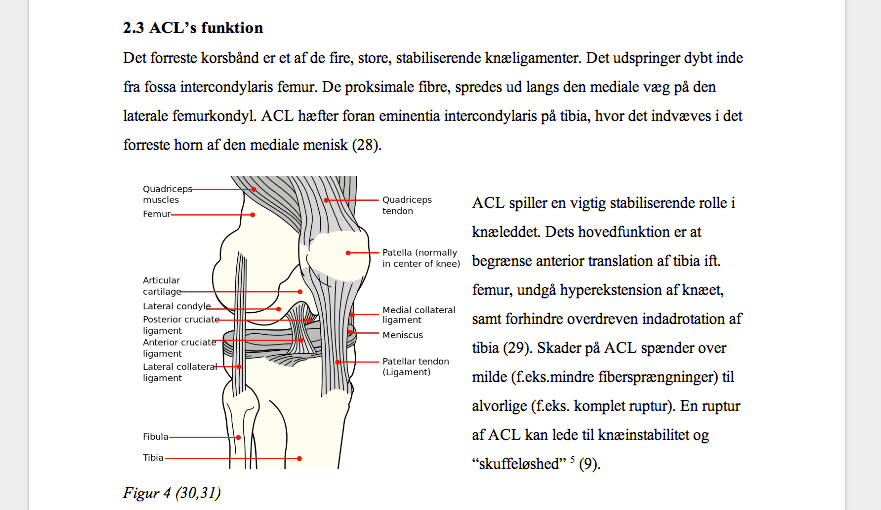
Q: Did you find Google Docs to be powerful enough for academic writing? What limitations / problems did you run up against?
As our university had strict rules on the formal aspects of the project, it was important that the reference manager used the correct format and reference style. We used Vancouver style and Paperpile followed it with pin-point precision. (Paperpile supports more than 6750 different citation styles through CitationStyles.org.)
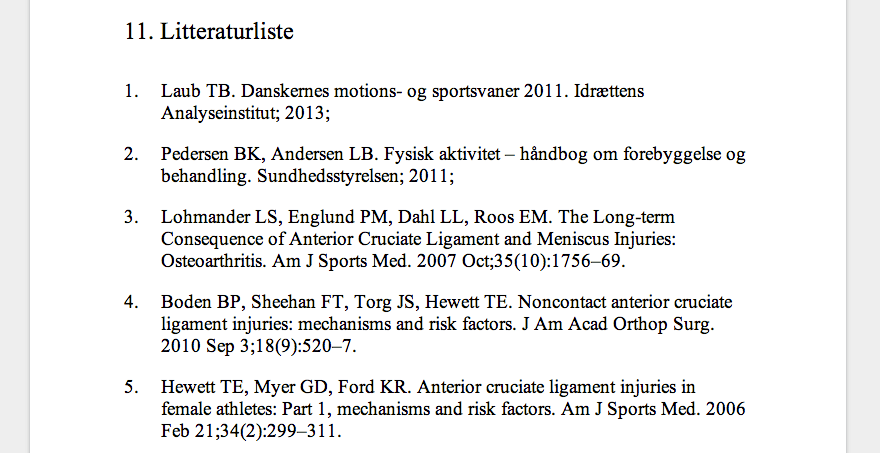
We did run into a few problems along the way (since Paperpile was still in the start-up phase), but all of these were thankfully corrected in the latest patch so I see no reason to mention them in further detail.
Q: How did your final project turn out?
We continued writing and finely tuning the project until the very last minute before it was submitted. We knew the project met a set of high standards, so we were quite excited about the final product. And then, at the final examinations, we all got top grades!
Q: Feel free to share any advice or experiences aimed at other students working on collaborative school projects. Did you learn anything helpful along the way, are there any things you would avoid or things you wish you had done differently?
While we had very positive experiences with Paperpile, it’s important to consider whether the annual subscription of $35.88 per person is worth the price. Thankfully in our case, the Paperpile team allowed us to subscribe as a group for the time that we needed, but we know that $36 can be a costly investment for a poor student.
If you plan to use a reference manager with Google Docs often throughout a full year, we happily recommend Paperpile. You might also consider free alternatives (e.g. Zotero or Mendeley), but keep in mind that these reference managers didn’t offer the full Google Docs integration that we needed.
Q: What are your plans for the future? Will you be writing any more academic papers once you enter the workforce?
Whether we would write academic papers in the workforce is unknown. Some of us have future plans for the master education though, which typically last two years. There is no doubt we would be in need of a useful word-editor and an efficient reference-manager at that time. Therefore, a two year subscription to Paperpile is most likely to occur :)
Note: if you are a researcher or educator interested in evaluating Paperpile for use by your students or faculty, we’d love to hear from you! Email us at support@paperpile.com or view our features overview to learn more. We’re excited to be launching a number of pilot projects at institutions in the US and UK in the coming months, with little to no start-up cost for the organizations involved. Your university could be next!

